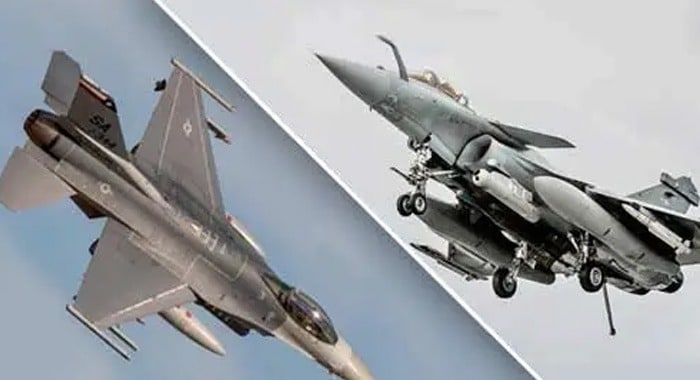The recent face-off between Pakistan and India didn’t just play out in the skies — it rippled through global markets. As Pakistani JF-17 and J-10C fighter jets dominated headlines for downing Indian aircraft, the shares of their Chinese manufacturer surged, while the French company behind India’s Rafale jets took a hit.
The geopolitical clash escalated after India launched missiles at five locations inside Pakistan on the night of May 6–7. In a swift and forceful response, the Pakistan Air Force (PAF) shot down six Indian jets and seven combat drones. Among the downed aircraft were three Rafale fighters — India’s crown jewels, made by France’s Dassault Aviation.
Despite being hailed as some of the world’s most advanced combat aircraft, the Rafales were intercepted and destroyed by PAF’s integrated air defence systems — a moment that defence analysts say has shattered the myth that expensive tech guarantees battlefield superiority.
In the aftermath, global markets responded swiftly. Shares of Dassault Aviation, the French aerospace firm that produces Rafales, plummeted by 6%, wiping out recent five-day gains of around 3.4%. In stark contrast, Chengdu Aircraft Corporation, the Chinese firm behind the JF-17 and J-10C jets, saw its stock prices rise by a staggering 18.18%, following news that these aircraft were responsible for shooting down the Indian jets.
Defence experts believe the market reaction signals a growing investor confidence in Pakistan’s air combat capabilities. “It’s not just about high-end price tags,” one analyst said. “Pakistan has proven that strategic integration, pilot skill, and real-time defence matter more than flashy acquisitions.”
Currently, Pakistan operates 168 JF-17 Thunder jets, jointly developed with China, and 25 J-10C aircraft, acquired specifically in 2021 as a counter to India’s Rafales. Both jets played a key role in the recent air engagement, according to PAF sources.
The Pakistani military also released footage of destroyed Indian posts along the Line of Control, shown during a press briefing by ISPR. Military spokespersons emphasized that Pakistan’s actions were strictly defensive, taken in response to Indian aggression, while reiterating that Islamabad reserves the right to retaliate “at a time and place of its choosing.”
As tensions continue to simmer, Pakistan’s battlefield gains are now making waves in financial markets — a rare moment where air superiority translates directly into investor confidence.





